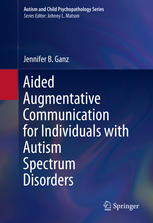

Most ebook files are in PDF format, so you can easily read them using various software such as Foxit Reader or directly on the Google Chrome browser.
Some ebook files are released by publishers in other formats such as .awz, .mobi, .epub, .fb2, etc. You may need to install specific software to read these formats on mobile/PC, such as Calibre.
Please read the tutorial at this link: https://ebookbell.com/faq
We offer FREE conversion to the popular formats you request; however, this may take some time. Therefore, right after payment, please email us, and we will try to provide the service as quickly as possible.
For some exceptional file formats or broken links (if any), please refrain from opening any disputes. Instead, email us first, and we will try to assist within a maximum of 6 hours.
EbookBell Team

0.0
0 reviewsJust as autism is a continuum of disorders, it is associated with a broad range of neurodevelopmental, social, and communication deficits. For individuals with autism spectrum disorders (ASD), augmentative and alternative communication (AAC) has a major impact on their daily lives, often reducing the occurrence of challenging behaviors.
Aided Augmentative Communication for Individuals with Autism Spectrum Disorders is a practical guide to the field, offering readers a solid grounding in ASD, related complex communication needs (CCN), and AAC, especially visual and computer-based technologies. Widely used interventions and tools in AAC are reviewed—not just how they work, but why they work—to aid practitioners in choosing those most suited to individual clients or students. Issues in evaluation for aided AAC and debates concerning its usability round out the coverage. Readers come away with a deeper understanding of the centrality of communication for clients with ASD and the many possibilities for intervention.
Key areas of coverage include:
Aided Augmentative Communication for Individuals with Autism Spectrum Disorders is an essential resource for clinicians/practitioners, researchers, and graduate students in such fields as child and school psychology, speech pathology, language education, developmental psychology, behavior therapy, and educational technology.